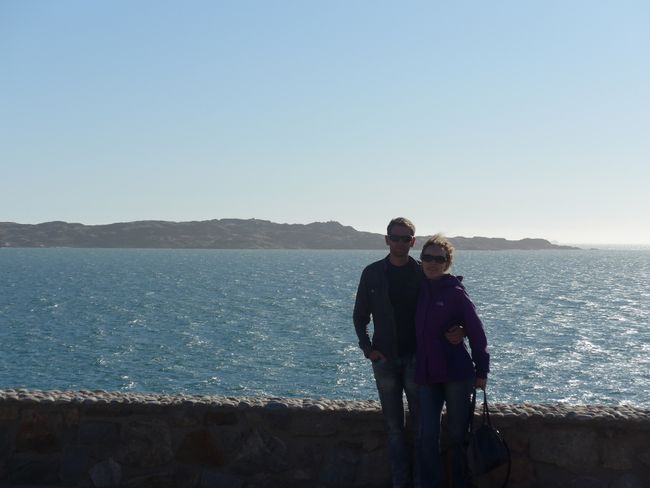Yogyakarta - Why All Men Have Birds in Java (Java Tour 4)
已发表: 10.09.2018

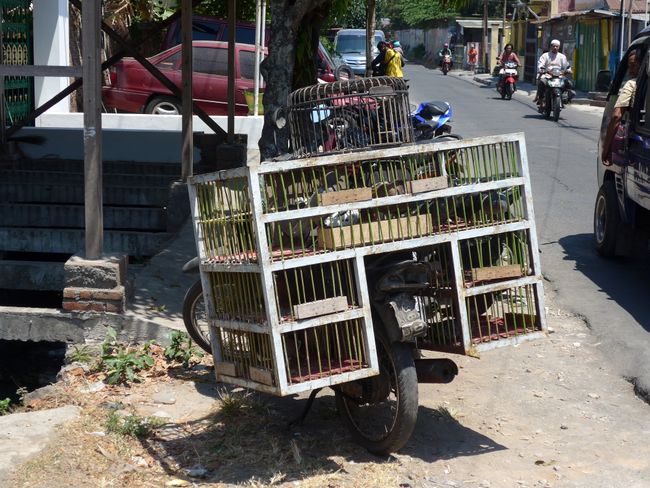
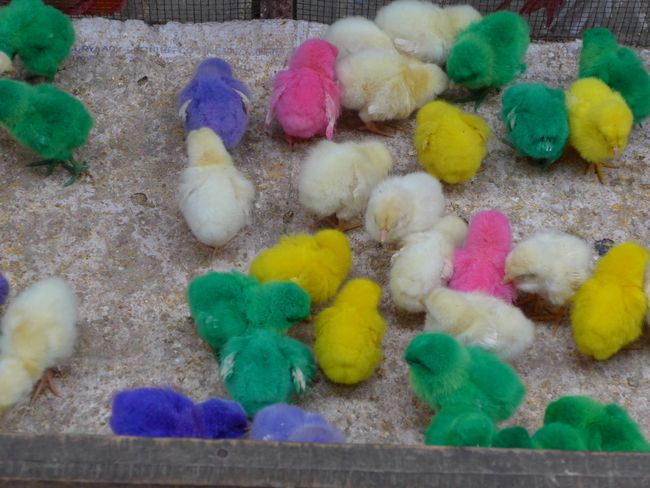
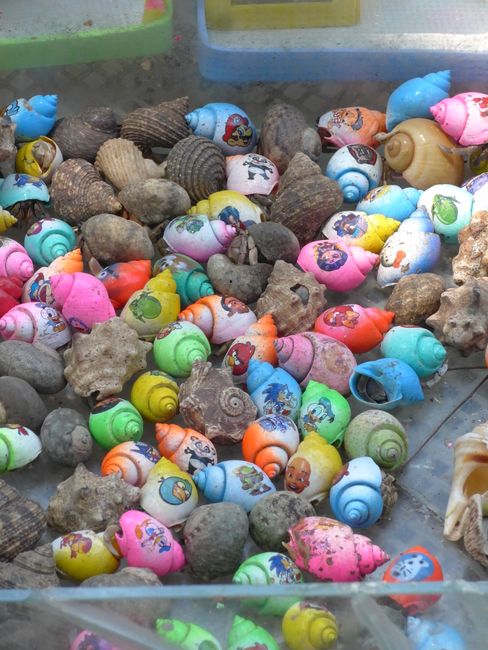
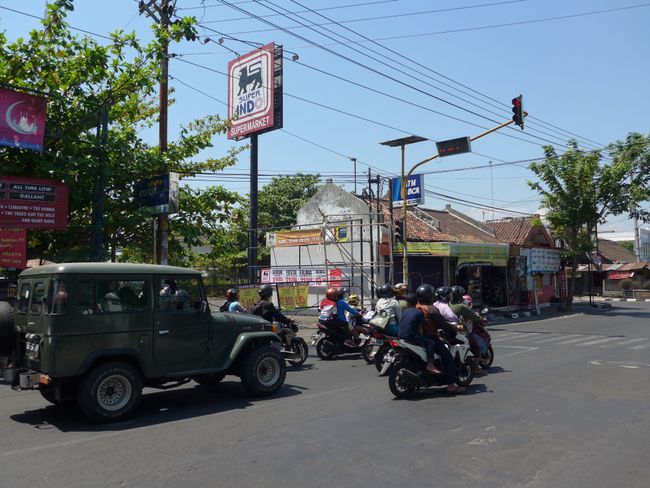
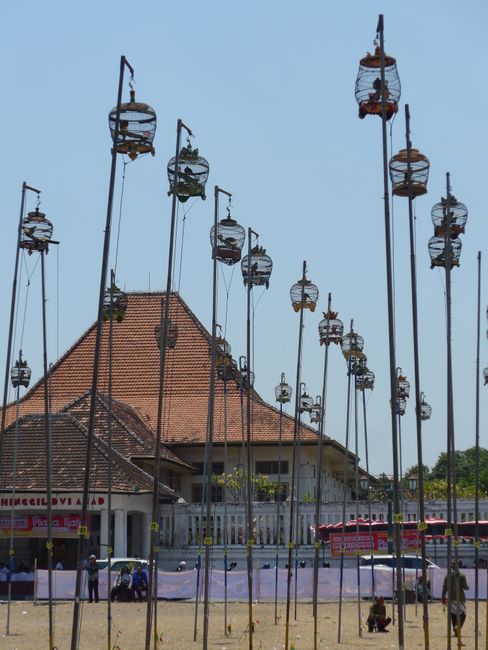
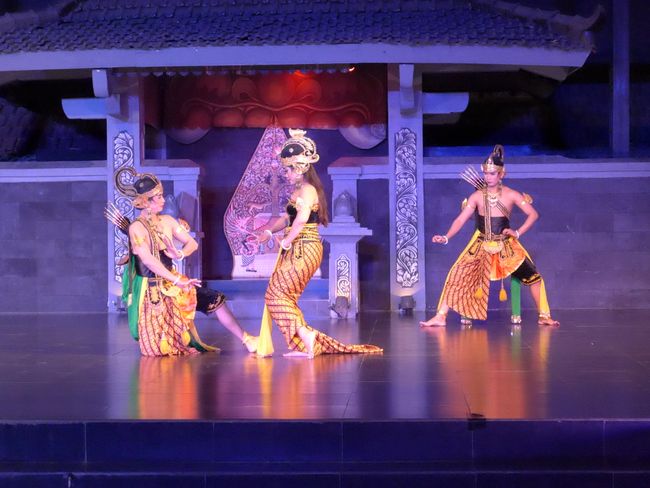
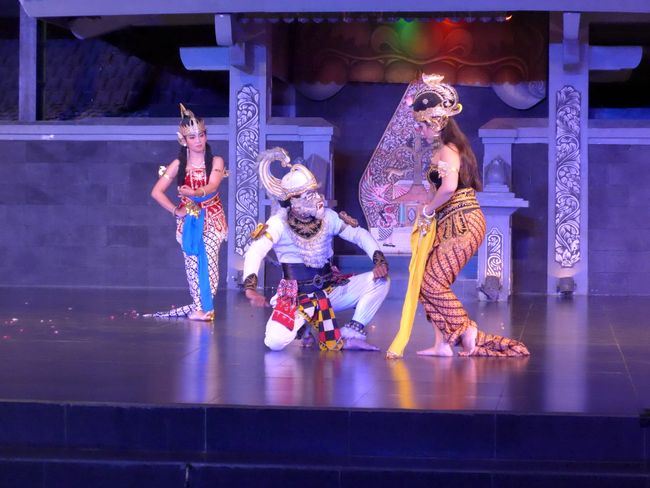
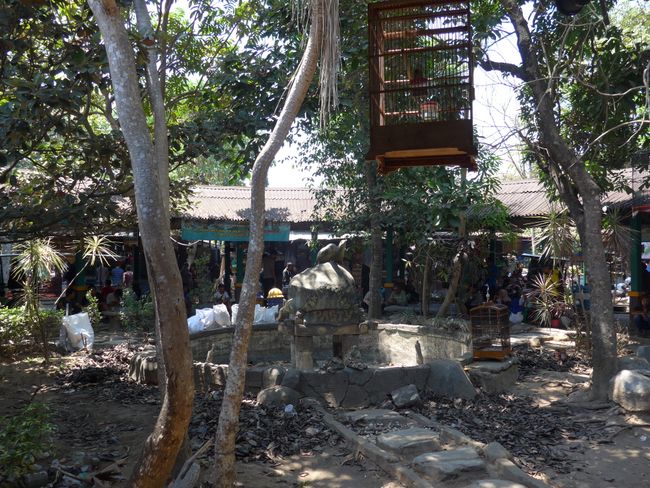
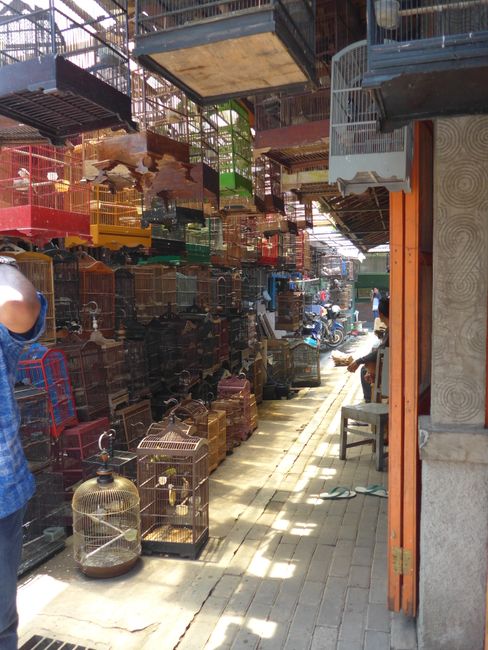
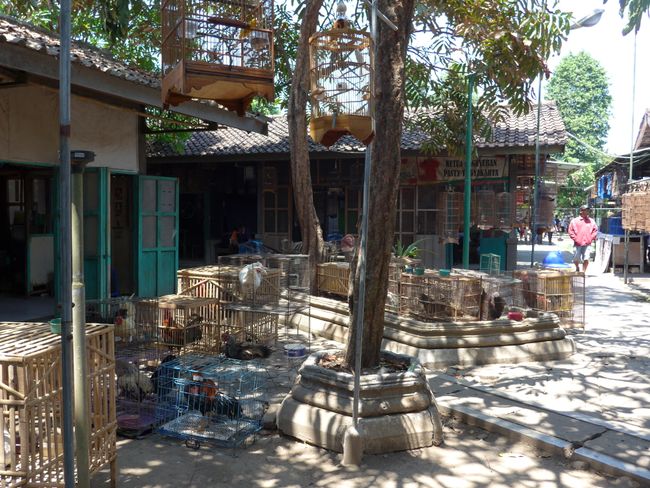
订阅时事通讯
On Sunday morning we set out on our own exploration tour of Yogyakarta. According to our tour guide, Indonesians are the laziest people in the world, so there were hardly any pedestrians around and there were very few sidewalks. So we had to share the narrow streets with mopeds driving in all directions and cars.

Finally we reached the bird market where many different types of birds, bird food (including maggots, worms, etc.) and other creatures such as squirrels, fish, turtles and lizards are offered. This market may not be suitable for animal rights activists accustomed to European standards because the animals are kept in small cages.
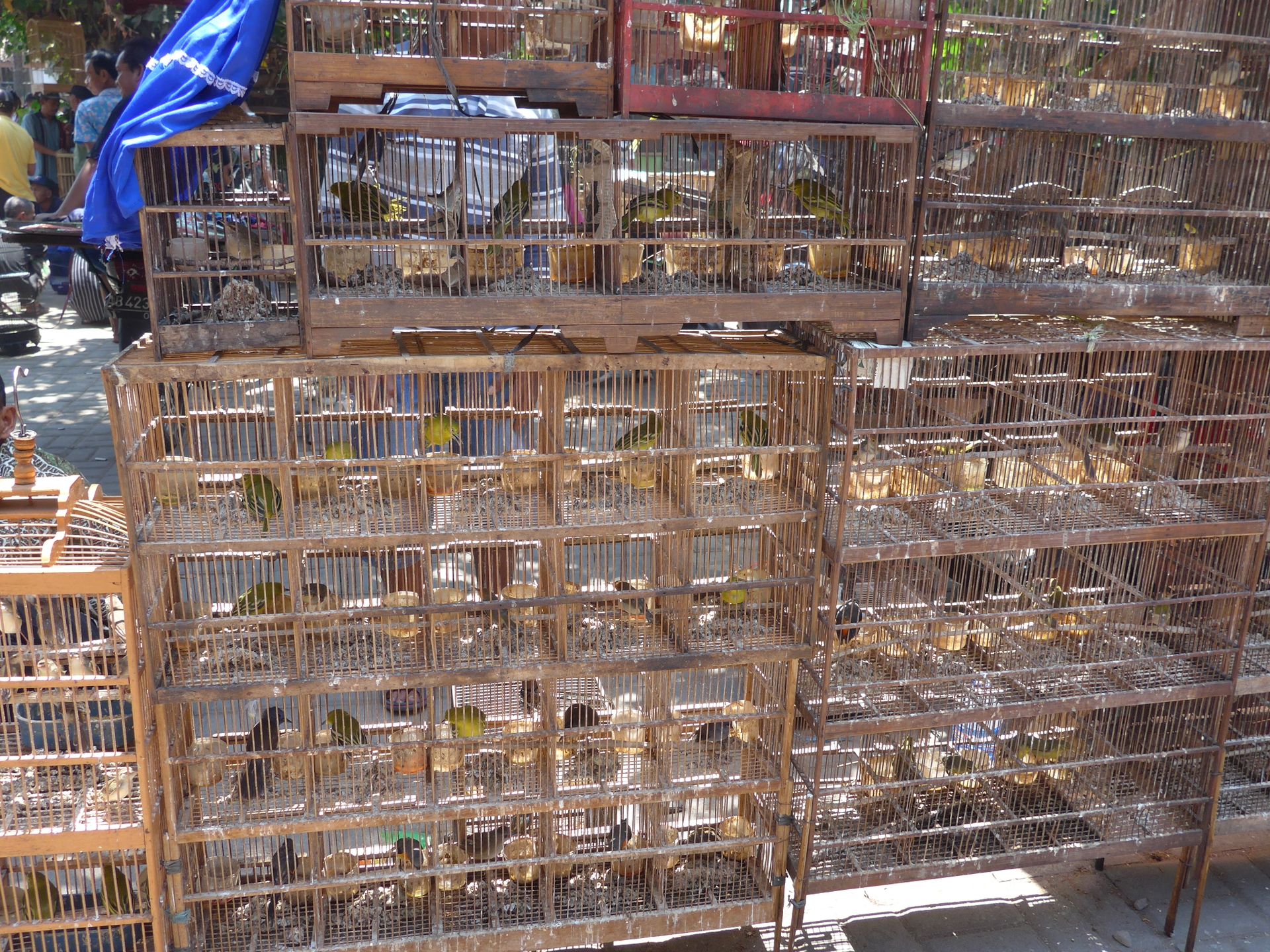
There were some children who bought their new pet, for example a brightly colored chick.

However, it was mainly men who stood fascinated and open-mouthed in front of bird cages. In Java, bird keeping is considered a man's thing and a bird is an important status symbol. There are first, second and third class birds, with a first class bird costing as much as one or two mopeds ...

So one popular activity for men is to stroll around the bird market where they can buy a new bird, accessories or food.
Our tour guide taught us that there are five status symbols in Java:
1. a house for the family
2. a car
3. a bird
4. a kris (a traditional dagger passed down as a family heirloom)
5. the wife
Some men also brought status symbol No. 5 along to buy a bird, but most were alone. Birds are simply a man thing.

When we left the market, we were immediately approached by a rickshaw driver asking where we were going. It is hard to imagine here that anyone would walk longer distances in the city. After lengthy price negotiations, we took the rickshaw to Alun-Alun, a large square. There a bird competition took place where proud owners presented their birds to a jury of many men running around with clipboards. It is not the beauty of the bird that is judged, but its voice. All the cages hung on poles in the square and the achieved points were marked with little flags, as a friendly passerby explained to us.

After some rest in the hotel, we visited an evening dance performance of the Ramayana epic. This Hindu legend tells the tragic love story of Rama and Shinta, which in the tourist version is less tragic and has a happy ending.


订阅时事通讯
回答

旅行报告印度尼西亚

